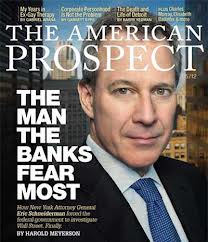BrokerDealer.com blog update courtesy of latest clipping from Wall Street Letter, the sell-side industry’s leading publication profiling trading technology initiatives. The article below was authored by WSL staff reporter Sean Creamer.
August 7, 2014 –OMEX Systems, a provider of web-based, broker-neutral and FIX-compliant front, middle, and back office platforms for broker-dealers and buyside firms will craft a direct market access offering to aid broker-dealers in choosing algo providers, according to John Houlahan, chief operations officer.
New York City-based OMEX is creating functions for traders interested in setting up direct market access to allow brokerages to place and modify orders on a faster basis, noted Houlahan.
“We are also building out functionality to facilitate direct market access clients via internal algorithmic parameter metrics,” said Houlahan. “We are building a DMA tool to allow broker-dealers to pick and choose various algo providers to place, modify, and monitor trades for intraday modification for cash desk, options, fixed income and futures.”
OMEX is also preparing to make its trading and execution functions available across the pond, so that global broker-dealers can have access to the offering, Houlahan said. The expansion comes on the heels of the firm being certified for use in the Mexican exchange network, he added.
“We are working with firms that want to offer our product to clients globally,” said Houlahan. “This type of global reach would not be aimed at retail, but more at the investment advisor and broker-dealer level.”
OMEX has also planned upgrades that will allow broker-dealers to process multiple basket orders at a single time when trading in the ETF space before the year’s end, Houlahan noted.
“We are also further refining our program trading desk module to better enable those broker-dealers who are seeing an influx of basket trading on the level of Russell Indexes baskets,” said Houlahan. “In an upcoming release, we’ll process multiple baskets with multi-routing capabilities for those orders.”




